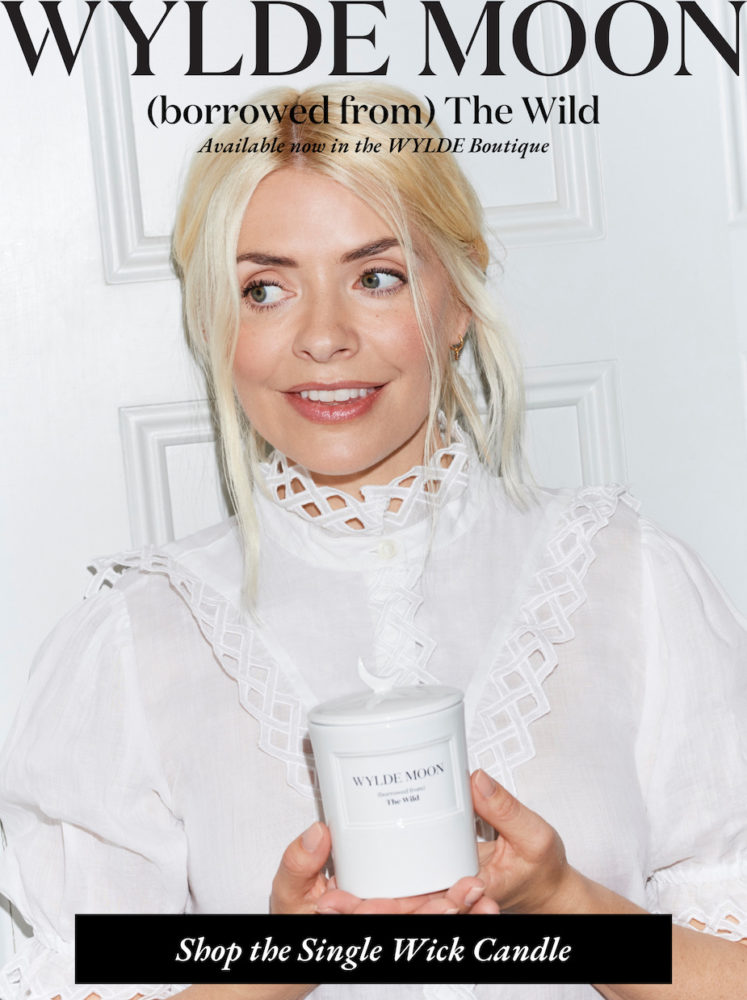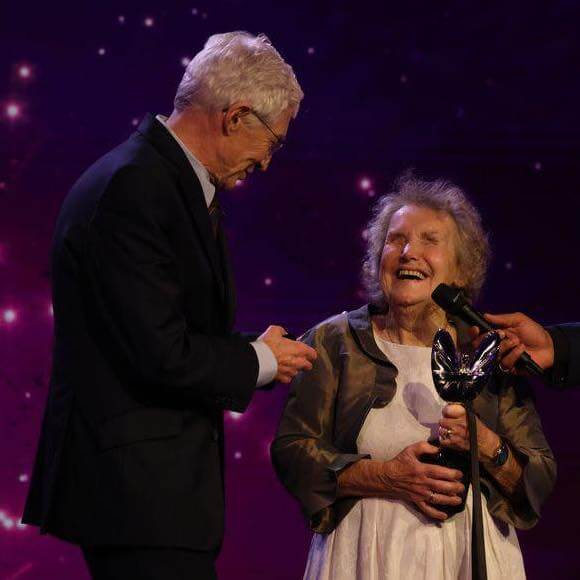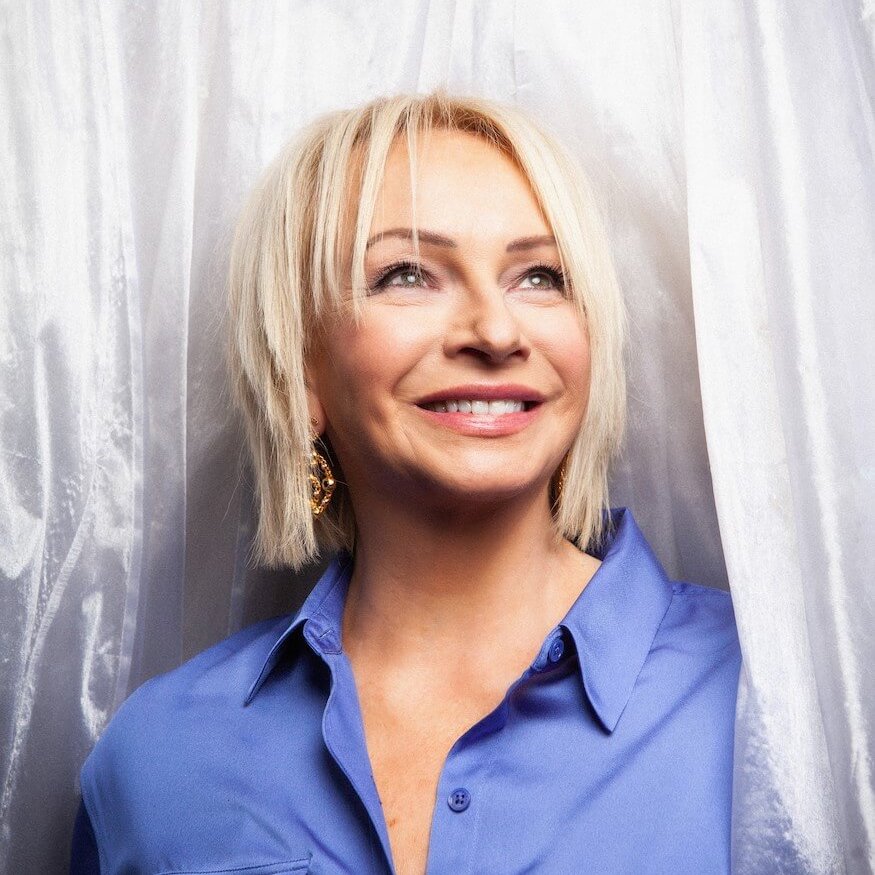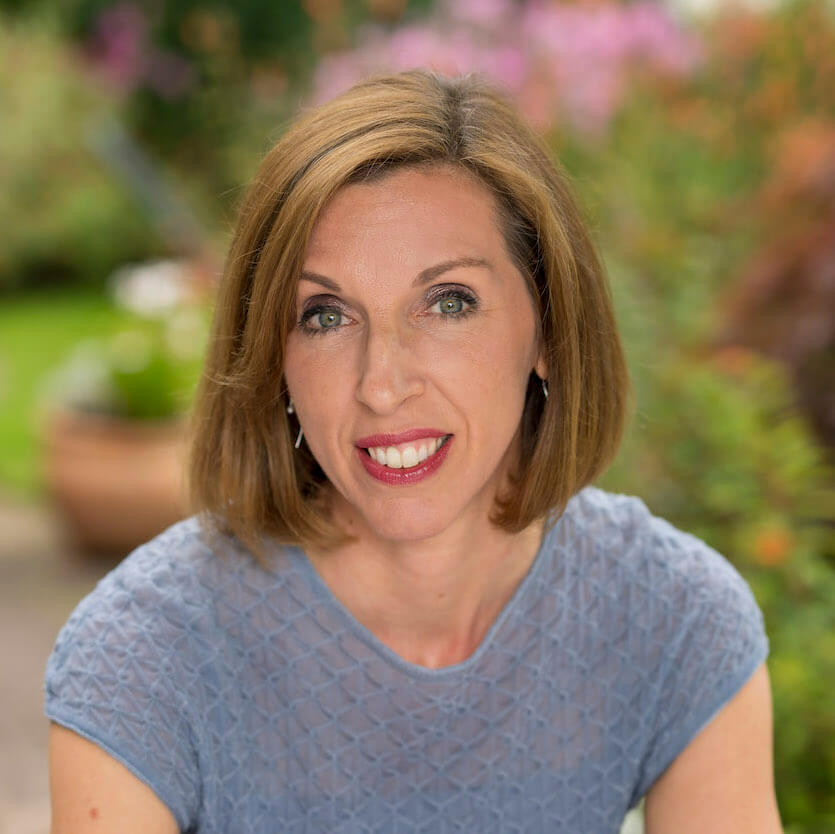5 Minute Read
Share this article…
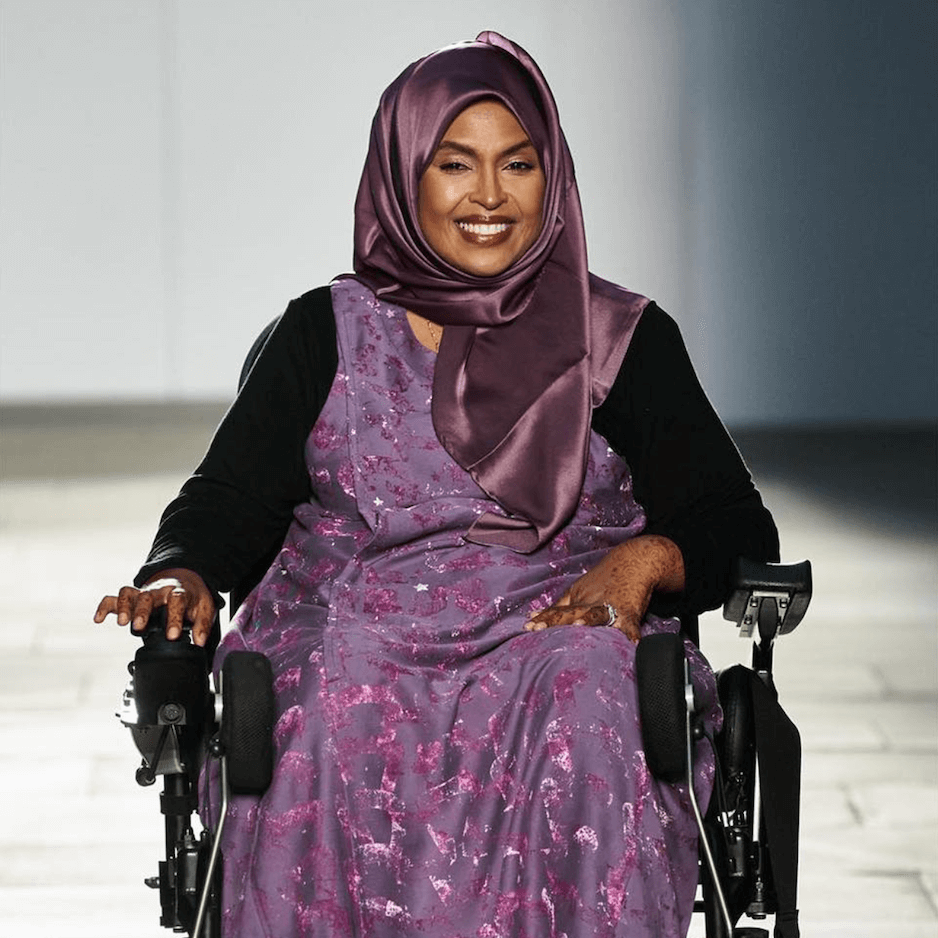
Faduma Farah
“If You Want Change it Has to Start With You”
Faduma Farah was a busy mum of two sons when she was paralysed from the neck down. She never dreamt it would turn her into a fashion disruptor featured in Vogue.
The ability to get dressed in our favourite clothes is something that’s easy to take for granted. Faduma Farah never expected it to be one of the things she lost when her life was altered forever, in 2011, after contracting meningitis and nearly dying.
Initially paralysed from the neck down, Faduma drew on sheer grit and determination to defy expectations and regain control of her upper body.
But as someone who has always been passionate about fashion, Faduma became incredibly disheartened by the lack of stylish, wearable clothing for wheelchair users like her.
“When you’re sitting in a chair, your body shape changes completely. I was used to wearing glamorous clothes and feeling good about my appearance – it didn’t seem fair that I had to lose that part of myself, so I did something about it.” says Faduma, who is without doubt an inspirational WYLDE Woman.
In 2021, she teamed up with Oxford Fashion Studio to launch Faduma’s Fellowship, an opportunity for a fashion designer to work in partnership with her to create a fashion collection with wheelchair users at its heart. More than 20 designers applied and the winner, Harriet Eccleston, presented the first ever adaptive-wear collection at London Fashion Week September last year.
“If you had told me this would happen when I was in hospital, unable to move, I would never have believed you – not in a million years,” says Faduma.
 Describe what your life looked like before you contracted Meningitis.
Describe what your life looked like before you contracted Meningitis.
“I was just an ordinary mum, busy working and looking after my two young sons with my husband. I loved fashion and dressing up – I loved clothes that were full of life and joy. But then I got ill with Tuberculous Meningitis; I was in hospital for a year and a month, I almost died three times. A psychiatrist was in the room when I was given the news that I was paralysed from the neck down. But even then, I refused to believe that would be the end of me. I thought, even if I can only move my little finger, I will move my little finger. I will make the most of what I can do.”
 It sounds like your recovery defied the doctors’ expectations?
It sounds like your recovery defied the doctors’ expectations?
“Yes. When I got home, my arms and hands were completely limp. I desperately wanted to hug my sons. They would come to me and lift my arms around them and I thought, no, I can’t have this. My physiotherapist told me not to overdo it but I thought, what more harm can I do to myself?! I can’t get any worse. So, I got some resistance bands and started trying to push and build up my strength.”
 How did you feel on the inside?
How did you feel on the inside?
“As I got stronger, I found it hard having so few clothes to wear. I didn’t feel like me anymore. Fashion is part of your identity and to suddenly find yourself with no options… it didn’t feel fair. When you’re pregnant, there are maternity clothes – and that only lasts nine months. But there are millions of people in wheelchairs for their whole lives.”
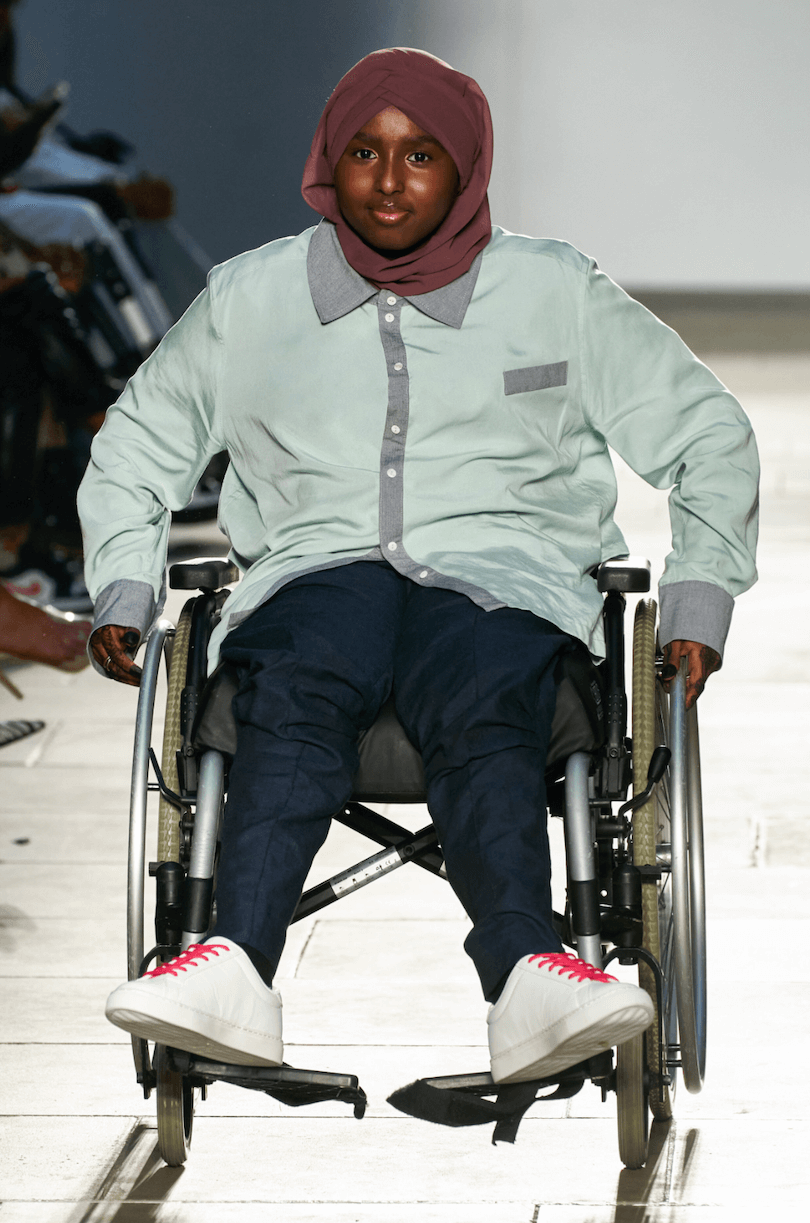
London Fashion Week SS22 – Model in the adaptivewear collection by Faduma Farah and fellowship award-winner Harriet Eccleston
 So how did the idea for Faduma’s Fellowship come to life?
So how did the idea for Faduma’s Fellowship come to life?
“I had never worked in fashion but I was complaining to my mother about the lack of clothes and when it would change. And she simply said, ‘Listen, if you want change, it has to start with you. What are you waiting for?’ That pushed me to do something myself. I spoke to my old boss Patrick Wintour [from when Faduma worked at the Employability Forum] and to my husband, Osman, about it. My husband was worried that if it didn’t work out, I would be sad about it, but I was determined. I was happy to just try.”
“I will never forget coming down the runway and seeing Patrick and my husband crying with pride.”
 The winner of the first Fellowship was designer Harriet Eccleston and together you collaborated on the history-making collection that appeared at last year’s London Fashion Week. How did you feel that day?
The winner of the first Fellowship was designer Harriet Eccleston and together you collaborated on the history-making collection that appeared at last year’s London Fashion Week. How did you feel that day?
“It was surreal! I will never forget coming down the runway and seeing Patrick and my husband crying with pride. It felt like I had done something good for the world. I got so much love and positive comments from other wheelchair users who finally felt represented. Before, if I wanted to get changed, I would have to be hoisted onto my bed, changed by two people, and hoisted back again – it was very difficult. But Harriet’s clothes were designed for comfort as well as style – for example, they often don’t have a full back so that you can put them on without getting out of your chair. We had models who were both able-bodied and wheelchair users to show that you can design for both.”
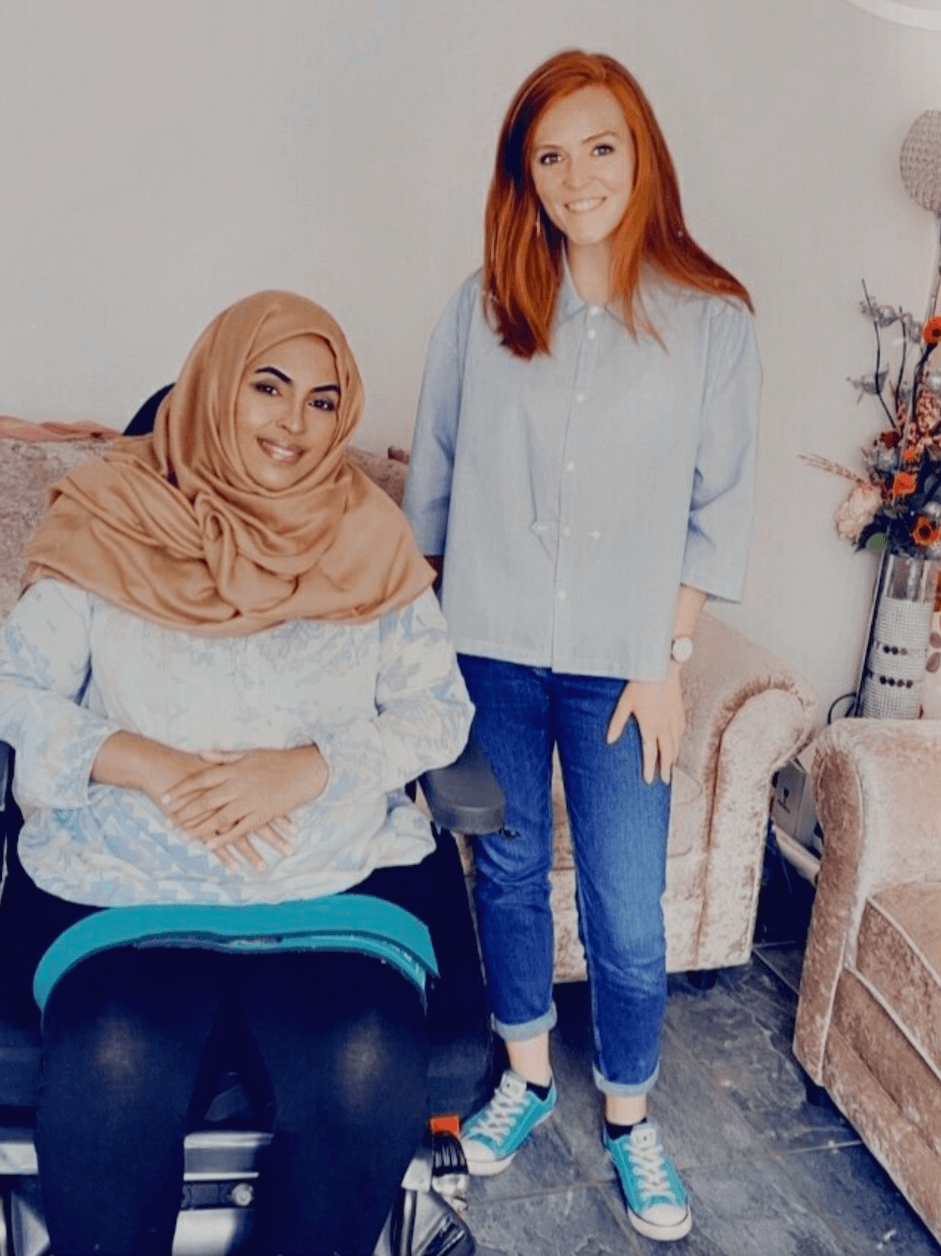
 What’s your hope for the future?
What’s your hope for the future?
“My hope is for a truly accessible world. Fashion is just a small dot! There’s so much I want to do but you have to start somewhere. I also still believe that one day I will walk in high heels again.”
 What would you say to someone reading this who has had a setback and is struggling to get going again?
What would you say to someone reading this who has had a setback and is struggling to get going again?
“I would say never give up. Disability is not inability. Disability does not disable dreams. If you have a dream, write it down and visit it again and again. Visualise the end, and if it isn’t working, try another way. Don’t give up.”
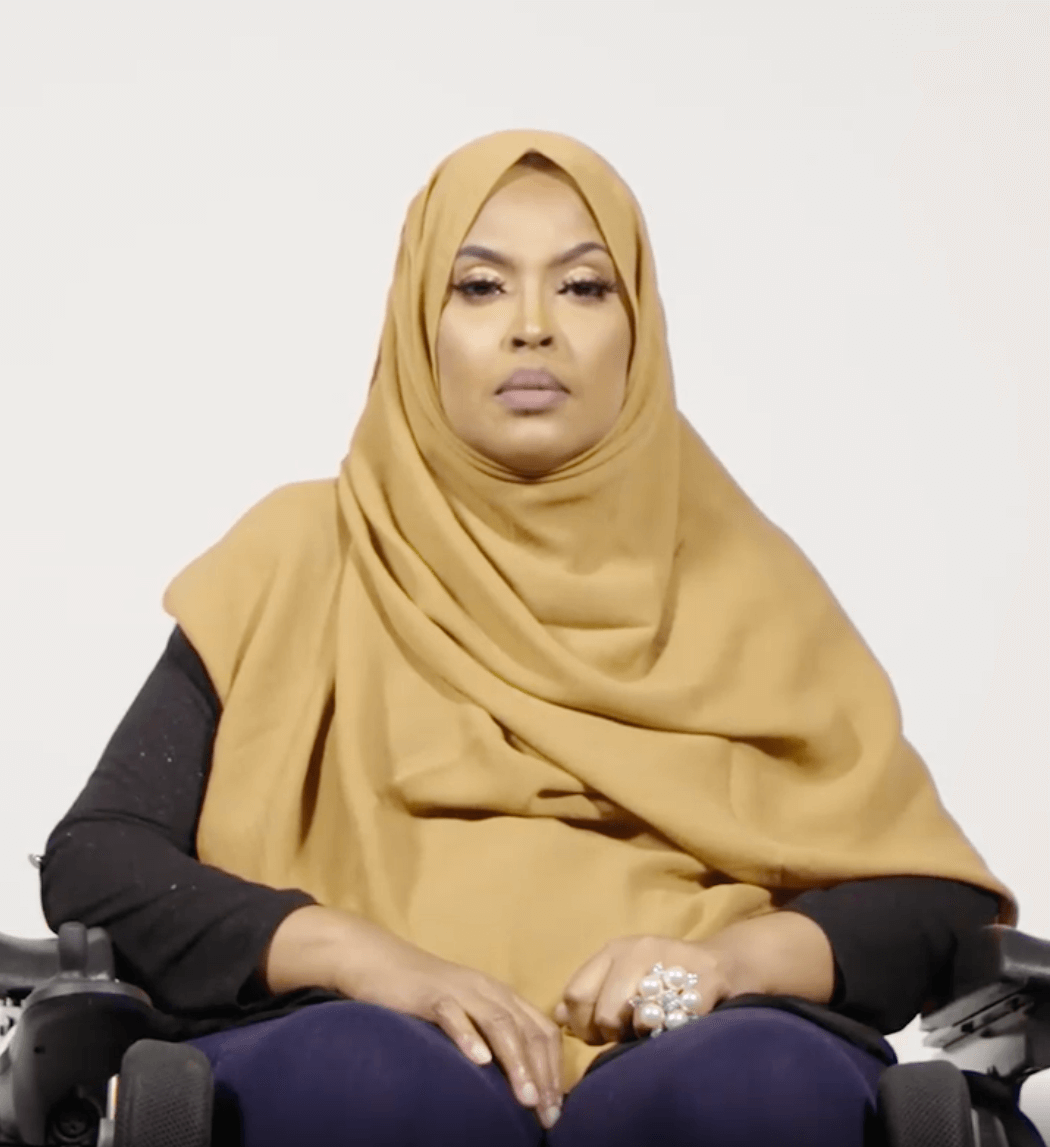
Faduma Farah
 What advice would you give your younger self?
What advice would you give your younger self?
“I would tell her to take each day as it comes. I would tell her not to put pressure on herself. All you need is enough money to pay the bills, put food on the table and dress smartly – if you can do all that, you’re ok! You should enjoy life – travel, play with the kids… Do these things now, while you can. “
 When are you at your happiest?
When are you at your happiest?
“Hmmm… the question should be when are you at your saddest, because honestly, I am always happy. I’m alive! I’ve been given another chance by God. I’m here to tell my story. The fact that I can put lipstick on my own lips, do my own hair, hug my child… these are my happiest moments.”
Find out more about Fadumas Fellowship at fadumasfellowship.com
Share this article…


